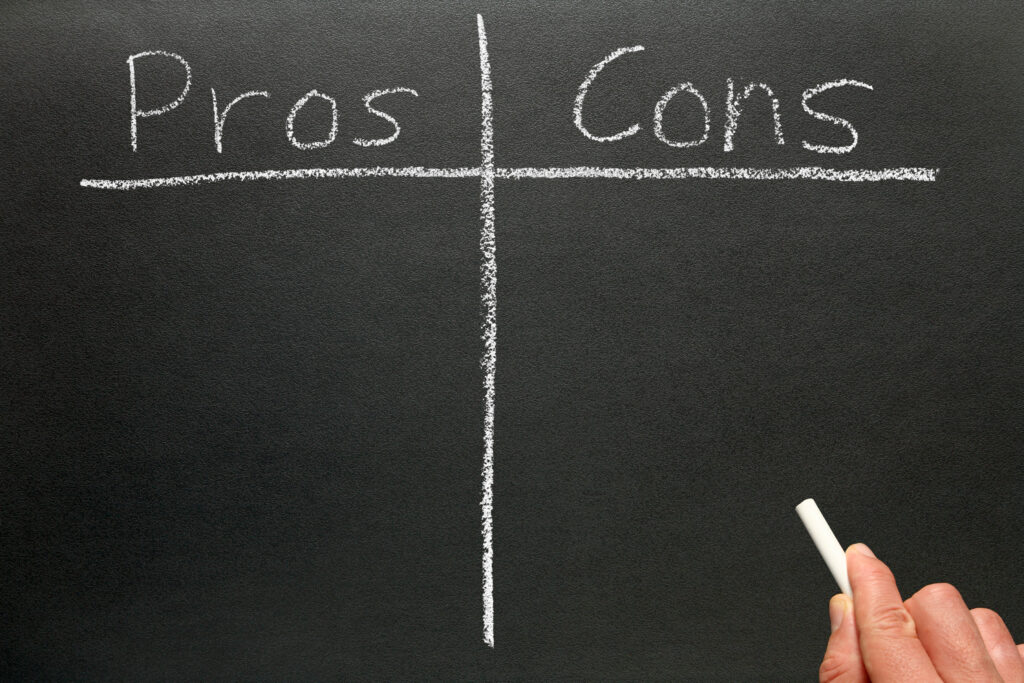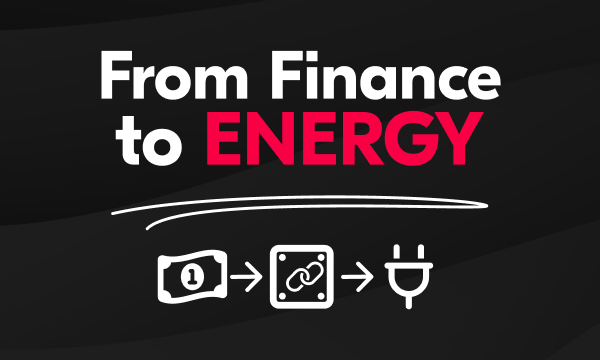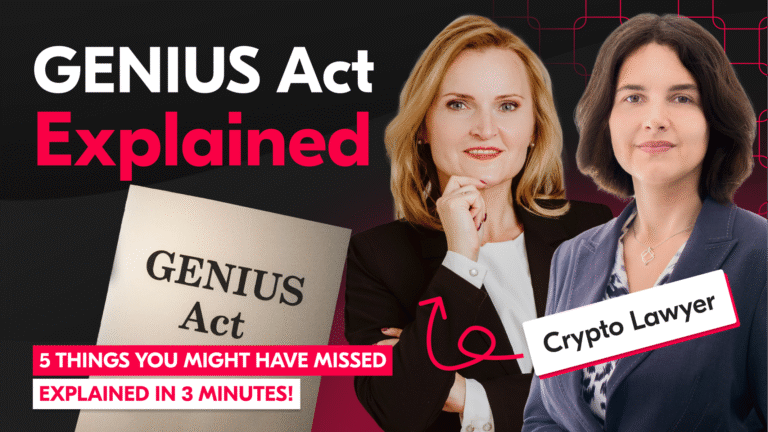Many blockchain enthusiasts push grand notions of how the technology will upend legacy industries, slash middlemen, and revolutionize the world as we know it. While this is arguably true, many fail to fully weigh the advantages and disadvantages of blockchain. There are a few limitations to consider.
Blockchain technology is beneficial in specific industries where people can’t trust one another, and where smart contracts will facilitate transactions between various actors. Real estate tokenization is one promising field. Supply chain management is another. Blockchain technology, however, may not be the answer to everything.
By design, one should use blockchain in order to establish trust through cryptography. Parties don’t have to trust each other or third parties in other words. But data consensus, so far at least, remains slow. Existing tech is far more efficient and cheaper to implement for many other features. If you’re in an industry where you can trust the parties involved, or where a trusted third party exists, look for other solutions.
Make no mistake, we at Espeo Blockchain strongly believe in the transformative properties of distributed ledger technology. Deciding whether blockchain will solve any meaningful business challenges is an essential part of what a blockchain advisor should do.
In this article, I’ll unpack what blockchains do well, and what they’re good at managing. But the main takeaway here is to carefully weigh the pros and cons of blockchain and decide if you really need one in your business, or not.
Cryptocurrency craze
At the height of the cryptocurrency craze in late 2017, investors flocked to any projects that claimed to employ blockchain. Poor understanding and blind optimism towards cryptocurrencies drove the market. Luckily, regulatory attention — and healthy skepticism in the market — have largely weeded these projects out. Many projects launched without consulting a blockchain advisor or a sound business plan. Nevertheless, some proponents still proclaim distributed ledger technology has all the answers.
That’s not to say that blockchain cannot address real business challenges, just that other technologies are likely a better fit. Many problems blockchain proponents say the technology will solve are still a long way off. Perhaps other solutions will improve your processes.
What are the advantages of blockchain?
Shashank Pettakar, editor of Data-Driven Investor writes “blockchain represents a significant advancement in data management. Its most prized feature is that it facilitates consensus within a trustless environment. Through an incentive system, a set of actors who have no reason to trust one another can [agree on the truth] before it is added to the chain.”
Thanks to its decentralized nature and distributed technology, blockchains remove any single point of failure in a network of devices. Looking at the benefits of blockchain, this is a huge plus. Designing the ledger as a peer-to-peer network with complete knowledge replication makes this possible. This also increases availability and enables any node to read the data accepted by the entire network.
For deeper dives into blockchain technology, here’s a list of blockchain books we’ve read and recommend.
Trustless consensus
Trustless consensus removes the need for trusted middlemen and spreads the burden of data management to individual devices, or nodes. Let’s say you want to invest in property, for example. A blockchain platform can seamlessly ensure that a seller holds the deed and that a buyer has secured financing. Currently, this process involves several intermediaries who do not share a common database and may not work together. In turn, this increases the time and cost of a property sale.
Companies that rely on several different actors who they might not trust may benefit from blockchain infrastructure.
Though a blockchain’s trustless consensus ensures the data is accurate, it tends to be slow. It only gets slower as a blockchain expands and adds more nodes. However, in case of such business models as the above-mentioned property example, this could work since smart contracts can automatically verify data through consensus.
One of the most frustrating blockchain limitations is the speed of transactions. Digital currencies aspire to replace fiat money and the grubby central banks that print it. Removing the intermediaries from the equation, believers claim, will democratize the system and allow individuals to transact directly without additional transaction fees.
A bankless world has yet to pan out, of course. Central databases, after all, are far faster at processing transactions. Any industry applications that require faster transactions should look elsewhere for solutions — for now. Any blockchain advisor worth his salt should divulge this fact.
Immutability – one of the biggest advantages of blockchain technology
In addition to verifying data, distributed ledgers also ensure that once written on the blockchain cannot be changed — also known as immutability. Blockchain Immutability is especially useful for managing contractual relationships or tracking transaction histories. However, this assumes that those who can write data onto a blockchain network are entering legitimate data in the first place. It’s also far from confidential, as anyone involved can see transactions.
Due to a blockchain’s immutability, users – contrary to conventional databases can only change information by adding new data to the existing log. This nature of blockchain guarantees that the database is complete and consistent and that all users can audit the data. Replicating a complete, globally ordered log of transactions across the network allows each node to derive a current state of processing which makes it possible to issue, verify, and accept transactions deemed accurate through consensus.
Consensus algorithms and full replication make sure malicious actors can’t write to the chain and spoil it. If everyone needs to save a transaction on their node, potential fraud gets denied. Of course, this assumes that all the users will use the network appropriately and not write frivolous or redundant transactions. If you can’t trust users to write data on the ledger, or if actors’ goals are not aligned, blockchain may help solve this. But if you can trust all the actors who can write to the chain and their goals are aligned, you don’t really need blockchain.
Decentralized, distributed
Almost as gimmicky as blockchain itself for some is the idea of decentralization. Blockchain-based applications remove any single point of failure by replicating all of the data on every single node in the network. Nevertheless, in some cases, traditional databases can do the same for far cheaper.
Trusted third parties can often deliver on the claims more efficiently than a blockchain. If you can’t trust a third party — or if one doesn’t exist, blockchain shows promising real-world use cases. In an environment where there is a trusted third party, blockchain advantages are currently dubious.
Pros and cons of blockchain
Looking beyond the blockchain technology pros and key benefits, there are some caveats. One of the main shortcomings in the current technology is, as I’ve mentioned, the transaction time. Verifying a transaction across the blockchain remains a relatively slow process — one that slows as blockchains expand and store more data. Sometimes, a simple database will do the job faster and cheaper.
Take Hyperledger Sawtooth for example. Transaction times can reach upwards of three seconds on average. It can also only handle about sixty transactions per second. Such delayed transaction latency makes any blockchain solutions cumbersome for industries that require rapid transactions like i.e. financial sector. The cost to commit a transaction also rises considerably as more data gets stored on a blockchain.
Blockchain use cases
Many cite international trade as one of a couple of industries with a solid argument for the blockchain network. In early 2018, shipping giant Maersk partnered with IBM, and launched a blockchain-enabled global supply chain management system called TradeLens. According to a company press release, the technology empowers diverse trading partners to establish “a single shared view of a transaction without compromising details, privacy or confidentiality.”
In theory, this is a good fit for blockchain. There is a web of shipping companies, port authorities, and customs agencies that must coordinate throughout the shipping process. In practice, however, Maersk still owns the intellectual property and will likely see the greatest share of the profits. Unsurprisingly, this limits its adoption among Maersk’s competitors.
While analyzing the potential use of blockchain – supply chain management should be a good fit for the technology. Some other use cases also work well. Complex systems can benefit from an auditable, unchangeable record of shipments that all parties involved can access. Needless time and resources go into exchanging data between separate databases. Falsified data is also common. Coordinating different companies’ records with customs authorities in each port improves an already complex mire of data. Transparency and traceability also increase efficiency in the global supply chain.
Supply chain companies store huge amounts of data and track this data in a space largely without trusted middlemen. Each port authority and customs authority operate on different databases. Shipping companies have to show a transfer of goods and prove it. When all parties see the same data and can verify shipment, receipt, and customs clearance, this cuts costs and streamlines the whole system. Admittedly, a more neutral platform will go a long way to increase adoption among competing companies.
When a database is more efficient
Meanwhile, blockchain-based solutions that aim to verify documents such as Learning Machine’s document verification tool may as well use existing technology. Users receive documents such as university diplomas or certificates which can be independently verified by another user without intermediaries. Currently, in order to verify a diploma or transcript, especially across borders, people have to send the document off for an apostille from an education ministry, or other central authority.
Developers claim it will eliminate forgeries and reduce bureaucracy — which may be true. However, developing a blockchain capability may needlessly add cost and complexity to a project. In situations where there is widespread fraud, a blockchain can help verify original copies. But where there isn’t, a centralized database is far more efficient. Universities and government ministries are fairly good at this already and may implement other technology to improve their processes. Tools that have been in place for decades, such as relational databases could address this for a fraction of the cost. Again, the dilemma is adoption among various institutions. A sober look at all the advantages and disadvantages of blockchain is necessary to decide if it’s addressing a real need. Here, a trusted blockchain advisor might offer invaluable insight.
Conclusion – pros of blockchain and its disadvantages
It’s important to weigh what makes blockchain useful and what are the weaknesses of blockchain in the context of your business. Consult a trusted blockchain advisor who will be frank about the technology’s limitations. An honest blockchain advisor will talk openly about the best applications. Blockchain is, after all, is a slow database. There may be faster, cheaper, more efficient solutions as I’ve mentioned. In short, don’t be seduced by the hype. That said, by design, key features include:
- No single point of failure
- Permanent, append-only log of transactions verified through consensus
- Trustless consensus
If you can introduce a trusted third party, they can achieve the other guarantees using different technology. Trust is the main issue here. If you can’t trust an intermediary with data, blockchain independently verifies transactions. If you weigh the pros and cons of blockchain and you can’t trust all the parties involved — definitely consider the technology. You need to sit down with a good blockchain advisor and figure out if blockchain makes sense for what you’re trying to do, and whether you should embrace the revolution.
Would you like to learn more about blockchain-based solutions or are interested in implementing blockchain solutions in your company? We are a certified blockchain technology provider and are here to help you with powerful enterprise-permissioned blockchain apps. Contact us!



